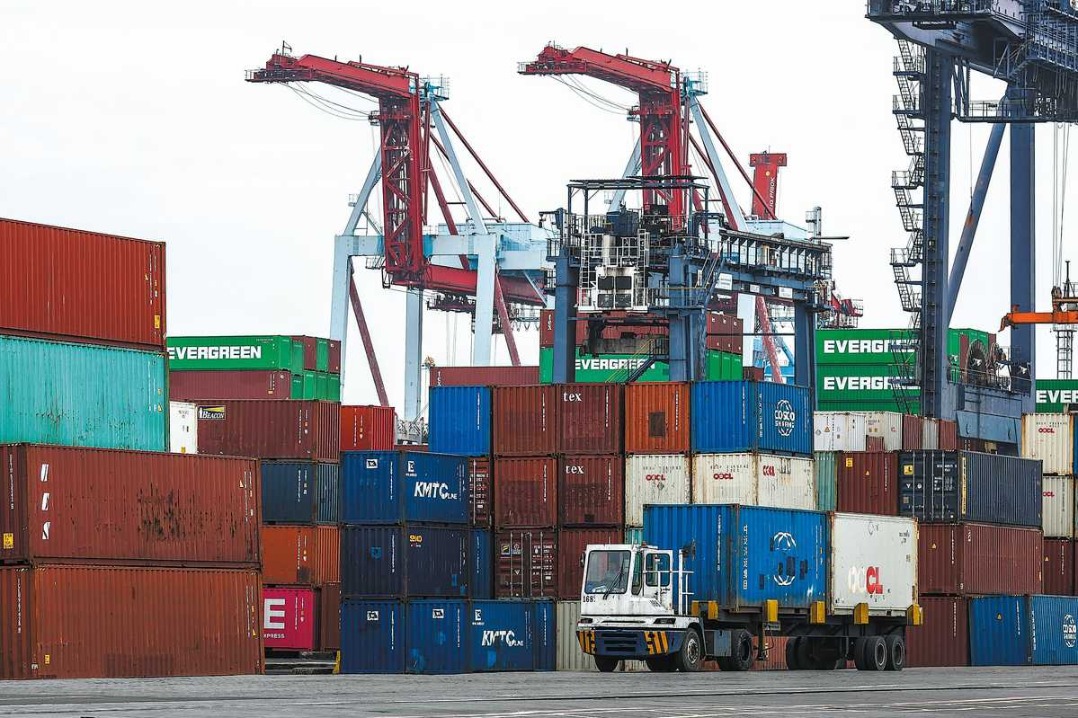China condemns US plan to revoke Chinese students' visas

China condemned on Thursday a United States' plan to "aggressively revoke visas of Chinese students", warning that such "politically motivated and discriminatory" actions would only further undermine the international image and national credibility of the US.
Foreign Ministry spokeswoman Mao Ning made the remarks after US Secretary of State Marco Rubio announced on Wednesday that the US State Department would work with the Department of Homeland Security to aggressively revoke visas of Chinese students, including those with connections to the Communist Party of China and studying in "critical fields".
According to a news statement, the US will also revise visa criteria to enhance the scrutiny of all future visa applications from the Chinese mainland and Hong Kong.
"The move by the US, under the pretext of ideology and national security, to unreasonably cancel the visas of Chinese students seriously infringes upon their legitimate rights and interests, and disrupts normal people-to-people exchanges between the two countries," Mao said at a regular news briefing.
China, the second-largest source of international students in the US after India, sent approximately 277,000 students to the US during the 2023-24 academic year.
Beijing has lodged solemn representations with Washington, Mao noted, adding that such acts expose the hypocrisy behind the US' long-touted values of freedom and openness.
When asked whether it could have broader implications or spillover effects on bilateral ties, Mao said that China's position on Sino-US relations is consistent and it hopes that Washington will take more constructive actions to promote the stable, healthy and sustainable development of the ties.
Rubio's announcement represents the latest and drastic move to curtail the number of international students studying in the US. It followed his order for US embassies worldwide to halt student visa appointments amid consideration of enhanced social media vetting.
Scholars have expressed concern that the politicization of the visa policy reflects not only Washington's deep-seated anxiety over China's development but also a broader agenda of pressure and confrontation.
"Beyond intensifying pressure in the economic and trade arenas, the US has manipulated visa policies in an attempt to gain leverage in negotiations with China," said Lyu Xiang, a research fellow at the Chinese Academy of Social Sciences. "This reflects what the US sees as 'comprehensive pressure' in pursuit of greater strategic advantage."
Noting that "critical fields" mainly refers to high-tech sectors, Zhang Tengjun, deputy director of the China Institute of International Studies' Department for American Studies, said the US has increasingly weaponized educational and cultural exchanges, a trend that could expand and which warrants close attention.
Given the important role of youth in shaping the future of Sino-US relations, Zhang added that attempts to sever people-to-people exchanges through visa restrictions could deeply harm mutual understanding and trust between the two nations.
Repeated crackdowns by the current US administration on international students have drawn sharp criticism from legal experts and academics, amid concerns over the long-term damage to the global competitiveness, academic freedom and reputation of US higher education.
Politico, a US news outlet, quoted Stephen Orlins, president of the National Committee on US-China Relations, as saying: "If you go around Silicon Valley, you see thousands of Chinese students or former Chinese students who are making enormous contributions to the United States, to our entrepreneurship.
"Revoking their visas will cut off the pipeline and create long-term damage to the United States."
During the 2023-24 academic year, a record 1.1 million international students studied in the US, contributing over $50 billion to the US economy, according to the Open Doors Report on International Educational Exchange released by the US-based Institute of International Education.

































